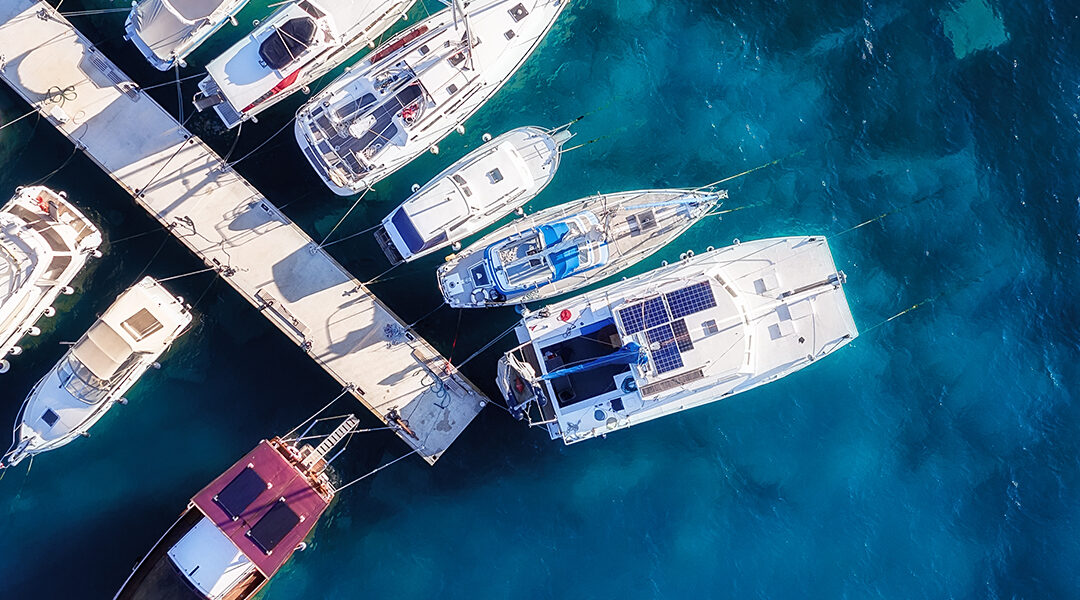The Maritime Training Academy is pleased to introduce Russel Stockil as the new Course Director for our Diploma in Superyacht Management.
This appointment follows the sad passing of Alan Dale, our highly respected and valued former Course Director, whose dedication and passion for the industry left a lasting impact on MTA and the many professionals he mentored. Alan played a pivotal role in shaping our Superyacht Management courses, and his legacy will continue to inspire the superyacht sector for many years to come.
With extensive experience in yacht management, operations, and industry development, Russell is well-positioned to lead our Superyacht Management courses, ensuring they remain relevant and impactful for aspiring and established professionals. We are thrilled to have him onboard and know that he will bring a wealth of experience and value to our students, as Course Director.
To help our students learn more about Russell, here you can read all about his industry experience, thoughts on the superyacht industry and his advice for those looking to get into Superyacht Management…
Q: Could you give a summary about your background in the superyacht industry and how you got into it?
A: Born and bred in Zimbabwe I was seemingly landlocked, however as an avid dinghy sailor from the age of 10yrs old. I had the opportunity to sail at a national and international level and nourish a passion for sailing and watersports. I discovered the yachting sector of this industry on a 3 month sailing voyage from Cape Town to Falmouth (UK) when we stopped at Horta, Azores and I came across the Alloy yacht “Corinthian”, brand new in 1994. I subsequently had the good fortune to work on some first class yachts with some excellent mentors (Borkumriff III with Malcolm Bromilow, Kingdom with Joe Russell and Peter Evans and Athena with John Clark and Steve Hammond) before going ashore in 2006 where I was instrumental in the set up and development of a (now large) yacht management company and have remained an active member in the yacht management sector for the past 19 years.
Q: What are you most looking forward to as the Course Director for the Diploma in Superyacht Management?
A: My focus has always been on helping people to find out what they don’t know, to be inquisitive and to find the real value that can be added within the yacht management and support sector. The starting point for this is in the education and the Superyacht Management Diploma is a very thorough syllabus covering all components and imparting valuable knowledge at all levels. I look forward to the opportunity to give back to an industry that has been rich in experience for me.
Q: How do you think the superyacht industry has evolved over the years, and what trends do you see shaping its future?
A: Looking back, I would say that the superyacht sector has evolved in a somewhat haphazard fashion within the general infrastructure of the shipping industry. We deal with some legacy issues which derive from the language used as the myriad of stakeholders from Owner to Designer to Shipyard to Broker to Class and Statutory to Captain and Crew and all the suppliers try to understand what they are dealing with! This, coupled with the phenomenal pace of technology and communication make for an interesting background as we try to ensure a safe working environment and realisation of the Owners dreams. The future will be shaped by the (hopefully intelligent) use of AI and autonomy as well as the evolution of propulsion and energy efficiency methods, a deeper understanding of sustainability and the full lifecycle and impact of every component. We are also facing greater calls for transparency in terms of Ownership and source of wealth which ultimately determine the appetite for being part of (and financing) this sector. Finally, crew mental health and well-being will require some paradigm shifts in terms of how both Crew and Owners view their experience within the yachting sector.
Q: What do you think is most important for a successful career in superyacht management?
A: The term “management” implies a level of responsibility and control; however, yacht management companies are never employers or Owners. Therefore responsibility is only defined in a management agreement, which is an agency agreement, and we all know that it is unwise to take responsibility for something that you have no control over. Therefore, the key to a successful career is to provide the type of support and infrastructure where solutions are actioned effectively, and the various stakeholders understand the role that they need to play in the operation, respect the chain of command and ‘make things happen.’ 80% of the daily challenges faced by those in yacht management are self-created through a lack of good communication and misplaced egos.
Q: What advice would you give to someone considering studying this Diploma?
A: If a yacht Owner walks away from the industry because they have had a bad experience, then this is harmful to the whole industry, and the source of that experience should be held to account. Regardless of the role you play, the knowledge that you will gain from this diploma will give you the grounding to contribute positively and responsibly in a richly rewarding environment.
A huge welcome to Russell from everyone at the Maritime Training Academy!
Find out more about our Diploma in Superyacht Management here

